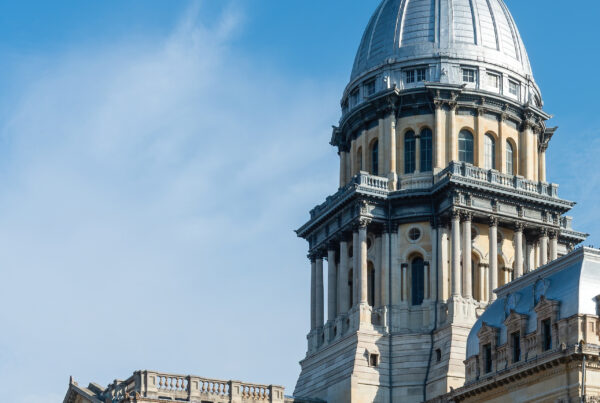By Mark Brown, Chicago Sun-Times columnist
Another week, another homeless initiative from Mayor Rahm Emanuel.
Last week, it was a pilot program to find housing for 75 people camped under Lake Shore Drive viaducts.
This week, he’s signing on to a proposal by Chicago aldermen to double his proposed surcharge on house-sharing businesses like Airbnb, with the proceeds to be used to provide services for the homeless.
The resulting 4 percent surcharge on the bills of house-sharing guests would initially bring in more than $2 million annually for homeless programs, with an expectation of added revenue in the future as the emerging industry grows, administration officials say.
The dedicated local revenue stream, long sought by advocates for the homeless, will be “groundbreaking,” the mayor promised in an interview.
So what gives? Has Emanuel grown a heart, or is he just trying to prove there was one there all along?
I’m not sure. Politics most likely, though, to be fair, he’s been pretty good on many housing issues.
The explanation might be this simple: Finding more money to help the homeless will likely help the mayor gain whatever additional aldermanic support he needs for his underlying proposal to regulate the house-sharing industry.
Emanuel said he plans to move forward in May with the ordinance, though he still faces opposition from multiple parties.
In a replay of the “new economy” battle playing out between taxi companies and ride-sharing services like Uber, hotel interests object on grounds that Emanuel’s regulations are too easygoing on the tech-based lodging services. They contend that some of the house-sharing companies operate what in effect are unregulated hotels that unfairly compete with them.
The real estate industry also has concerns. The Chicago Association of Realtors says tenants and condo owners should be required to submit affidavits attesting they have permission from their landlords or condo associations to rent their units. The underlying point: Many apartment and condo dwellers who already house-share don’t have such permission.
Airbnb is also displeased. The company argued the proposed 2 percent surcharge Emanuel unveiled in January was unfair to middle-class people renting out their homes on weekends. Doubling it to 4 percent doubles that unhappiness.
Despite those hurdles, Emanuel said: “I have no doubt we’re going to pass the ordinance.”
I have no position on the underlying Airbnb ordinance without more study.
But I think it’s a great idea to direct revenue from this new industry to homeless people, given the roundabout probability the Airbnbs of the world are going to further contribute to housing displacement.
There’s definitely a need for revenue. Even if the city can cobble together funding to provide housing for homeless people, federal and state budget cuts have decimated the services needed to help them stay there.
Those can include mental health treatment , substance abuse counseling and job-readiness training.
Emanuel’s original proposal directed the money to homeless families. With the need to address growing homeless encampments, some funds will be switched there, he said.
Ald. Ameya Pawar (47th), who teamed with Ald. James Cappleman (46th) on the idea of doubling the surcharge for homeless services, said doing so was enough to secure his support for the Airbnb ordinance.
“I think this is a good balance,” Pawar said.
Chicago Coalition for the Homeless also supports the surcharge plan.
Administration officials said the mayor remains open to considering further changes based on other concerns raised by aldermen but rejects Ald. Brendan Reilly’s position that the administration should scrap its proposal and instead enforce the stricter vacation rental ordinance that took effect in 2011.
After two weeks of our making nice, the mayor assures me he will do something in the coming week for which I can criticize him. I told him I look forward to it.





